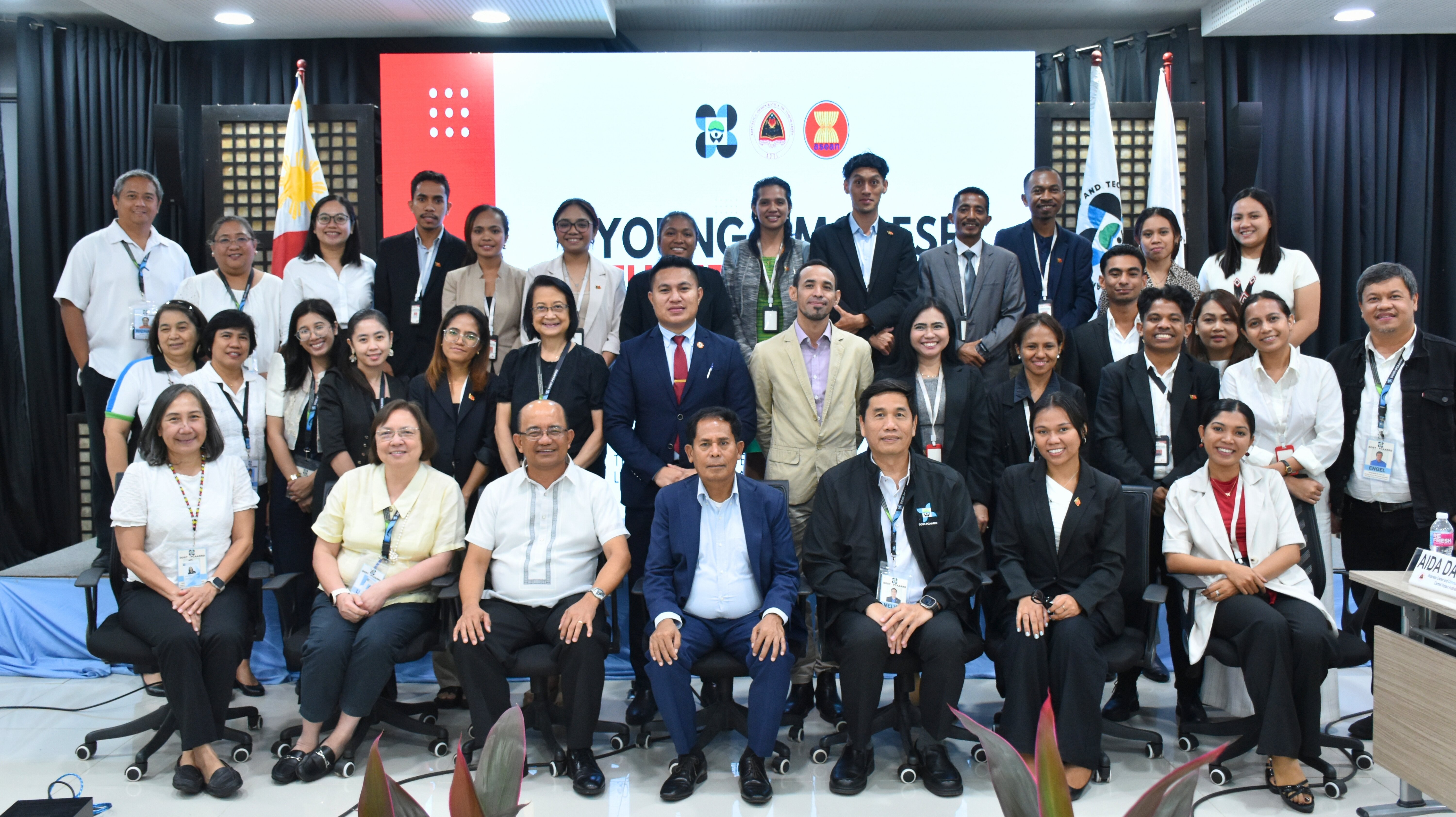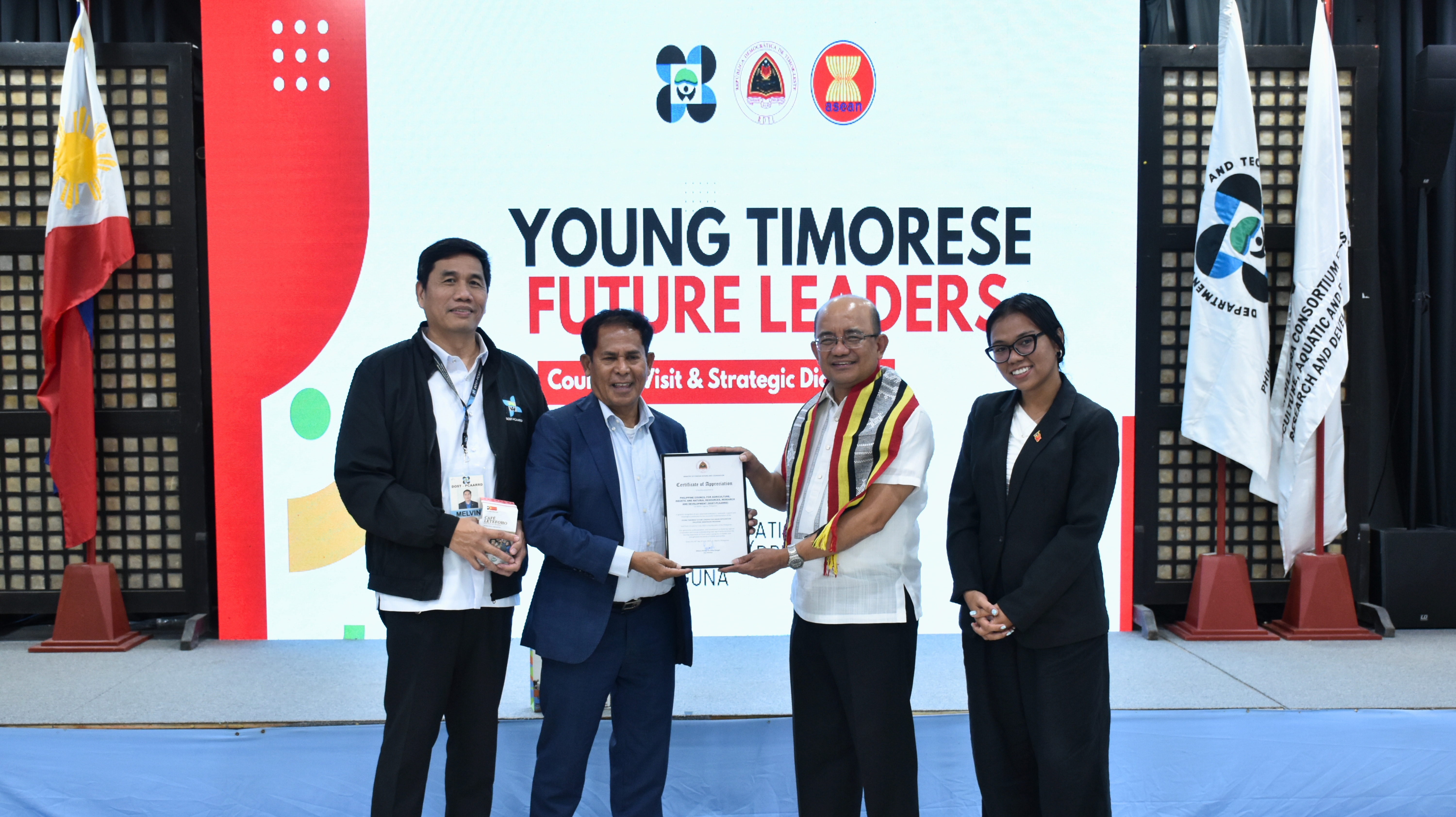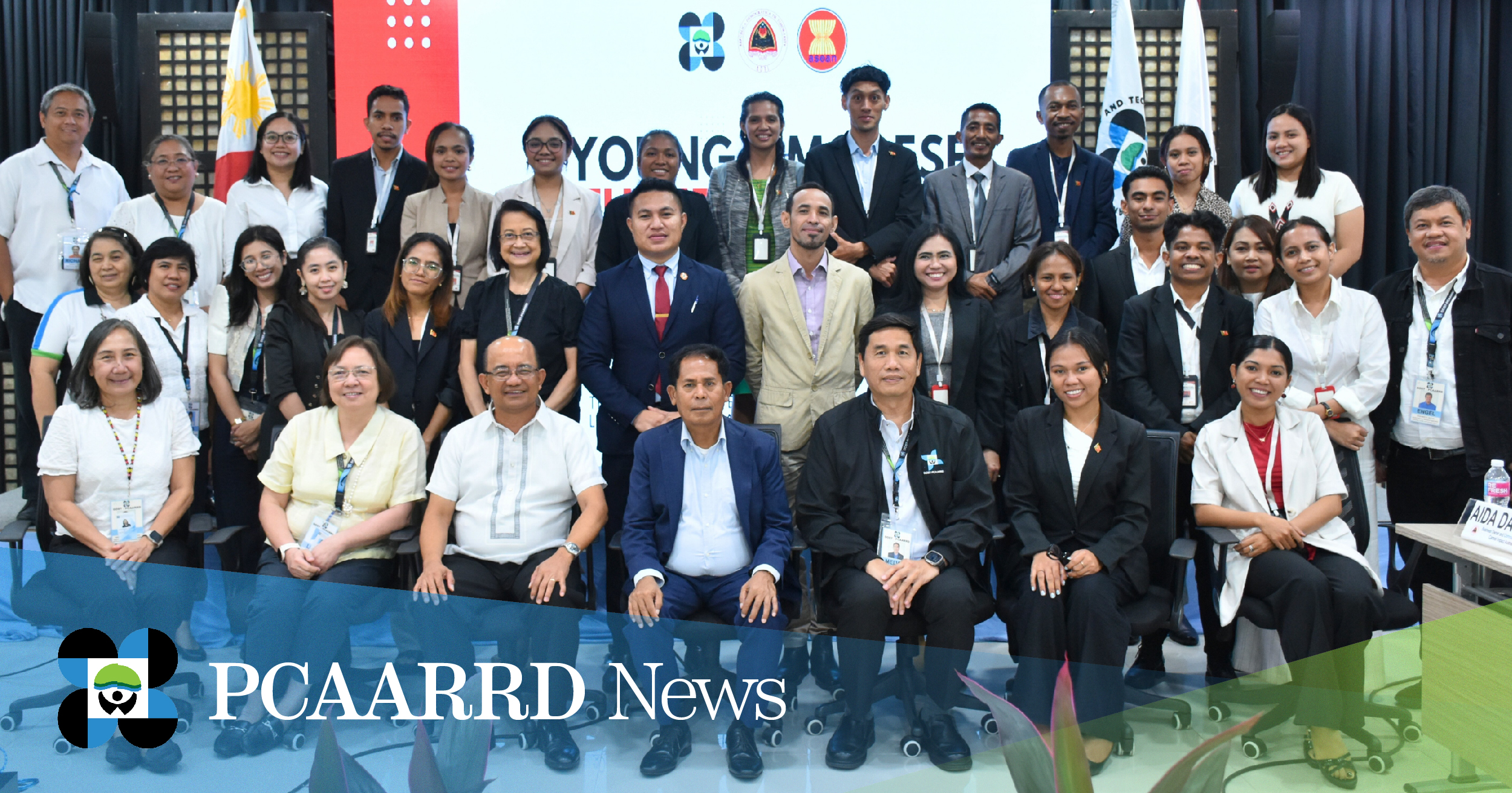As part of their ASEAN Immersion Program, young future leaders from Timor-Leste visited the Philippine Council for Agriculture, Aquatic and Natural Resources Research and Development of the Department of Science and Technology (DOST-PCAARRD) for a meaningful exchange of knowledge and advocacies. The visit also aimed to explore data-driven development strategies supporting food security, biodiversity, and sustainable development.
The delegation, composed of 14 young Timorese leaders, was accompanied by His Excellency Marciano Octavio Garcia Da Silva, Ambassador of Timor-Leste to the Philippines, and other officials from the Embassy of Timor-Leste in the Philippines.

During the visit, discussions focused on collaborative opportunities and policy directions to promote inclusive digital transformation in the agriculture, aquatic and natural resources (AANR) sector. DOST-PCAARRD Executive Director Reynaldo V. Ebora extended his appreciation for being considered as part of the delegation’s learning visit to the Philippines under the ASEAN Immersion Program. In his welcome remarks, Dr. Ebora expressed optimism that the exchange would inspire the Timorese youth to innovative solutions for development challenges in their country and across ASEAN.
Key presentations included an overview of DOST-PCAARRD’s mandates and programs by Dr. Melvin B. Carlos, Deputy Executive Director for Administration, Resource Management and Support Services (ARMSS). Dr. Carlos highlighted the Council’s approach in developing Industry Strategic Science and Technology Programs (ISPs) to intervene in various agriculture subsectors and its role in regional development through partnerships with local and international institutions and stakeholders.
Ms. Meliza F. Abeleda, Senior Science Research Specialist and Assistant Director of the Socio-Economics Research Division (SERD), shared DOST-PCAARRD’s efforts in the digital economy, focusing on Agri 4.0 strategies. These include innovative technologies such as Project SARAI or Smarter Approaches to Reinvigorate Agriculture as an Industry in the Philippines, Remote Online Surveillance for Banana (ROSANNA), Crabifier, Mechanization Resource Mapping, Monitoring and Data Analysis System (M3DAS) Mobile Collection App, Automated Furrow Irrigation System, among others, aimed at promoting sustainability in the AANR sector.
The presentations were followed by an engaging and productive open forum where delegates raised interests on agricultural technology adoption, technology transfer strategies, data analytics integration in smart agriculture, and the socio-economic impacts of these technologies on rural livelihoods, biodiversity, and food security. DOST-PCAARRD’s key officials and technical experts provided insights based on their respective fields, covering marine, forestry and environment, agricultural resources management, and socio-economics.

The visit concluded with a reaffirmed commitment to further explore avenues of cooperation, particularly in empowering youth and developing human capital to drive digital transformation in agriculture. Both sides expressed optimism that the dialogue would serve as a foundation for long-term collaboration, potentially formalized through a Memorandum of Understanding (MOU) outlining mutual interest.
Timor-Leste’s ASEAN Immersion Program aims to prepare its next generation leaders for long-term integration into ASEAN, focusing on areas such as the green and digital economies, and higher education. This year marks the program’s second implementation.

